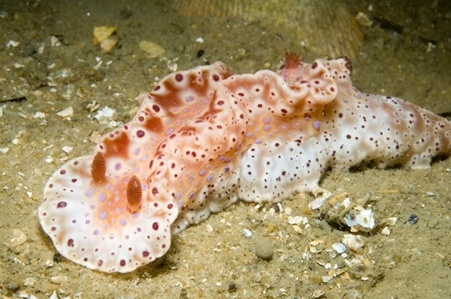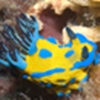Other Names
- Short-tailed Sea Slug
General Description
Body shape slug-like with gill structures visible as a single cluster on back of the animal. Pattern includes shades or colours of white, orange and/or red. Similar to Ceratosoma amoenum but C. brevicaudatum is a longer, higher, and more solid. Animal up to 12 cm long.
Biology
This is Victoria's biggest and most common nudibranch. It feeds on sponges.
Habitat
Intertidal to deeper waters, to depth of 120 m.
Reefs
Sponge gardens
Coastal shores
Distribution guide
Southern Australia.
Species Group
Nudibranchs and allies › Nudibranchs
Depth
Shore (0-1 m)
Shallow (1-30 m)
Deep ( > 30 m)
Water Column
Max Size
12 cm
Diet
Carnivore
Commercial Species
No
Global Dispersal
Native to Australia
Identify
Conservation Status
- DSE Advisory List : Not listed
- EPBC Act 1999 : Not listed
- IUCN Red List : Not listed






